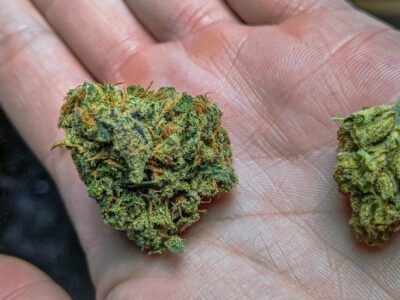COVID-19 has killed millions of people as it continues to spread uncontrollably all over the world. Nearly a year after a pandemic has been declared and lockdowns have been enforced by governments, the public is being asked once again to shelter in place as new strains of the virus are discovered. Even with vaccines being rolled out in many nations, the is still no light visible at the end of the proverbial tunnel.
This has led to the emergence of a new epidemic that affects individuals across all age groups: anxiety. Experts have coined the term “coronaphobia” to describe the type of anxiety that is specific to the virus that causes COVID-19. Researchers, who analyzed nearly 500 studies about the subject, describe the phenomenon as the excessive response to the fear of being infected accompanied by high levels of stress over symptoms, reassurance and safety-seeking behaviors, and avoidance of public places to the point that their lives have been badly impaired.
Symptoms associated with coronaphobia include wallowing in the uncertainties of the pandemic (potential job loss, death of a family member, and illness), adopting avoidance behavior, and increased anxiety that comes after a famous celebrity or world leader has contracted the disease.
Anxiety is a serious problem because it can prevent people from participating in school, work, and social situations. It can also lead to depression if left untreated.
A year into the pandemic, how are people dealing with the anxiety caused by COVID-19?
The Use of Cannabis Go High
While many businesses had to close down because of the public health and economic crisis, trusted CBD stores all over the nation see a huge demand for cannabidiol, an active ingredient of cannabis. CBD has been found to improve symptoms of anxiety. That is why it is no secret that people are turning to the plant extract to calm their nerves during this very stressful and traumatic period.
In the past year, the demand for CBD increased. The CBD Centers for America, one of the highest growers of hemp in North America, said that their extraction facility has been operating non-stop throughout the pandemic to respond to the demand.
Globally, forecasts expect overall sales of cannabis products to reach $19.7 billion in 2020, a 38% increase from the year before. Although the lockdowns and the uncertainties that come with the pandemic have slowed the growth of the cannabis industry, sales were able to recover quickly as sellers adopt e-commerce to continue serving consumers.
The efficacy of CBD to alleviate COVID-related stress is yet to be proven. However, researchers from the University of California, Irvine in October launched the first-ever study that will explore the potential of cannabis and CBD in providing relief from anxiety caused by COVID-19.
Drinking Through the Pandemic
Many Americans have also upped their consumption of alcoholic beverages during the pandemic, too. According to an online survey, the rate of drinking has increased, especially among young people who have mental health issues.
Of the 5,800 respondents, 29% admitted that they were drinking more during and because of the pandemic. More than 51% said that their drinking habits did not change in the past year. Only 20% reduced the amount of alcoholic beverages they consumed throughout 2020.
The survey also found that participants who have anxiety are 41% more likely to be drinking more. Those who are below the age of 40 are also more likely to increase their alcohol consumption during the pandemic, but people between the ages of 40 and 59 and over 60 are drinking more.
This, unfortunately, does not come as a surprise. People respond to high levels of stress through drinking as seen after 9/11 when 25% of New Yorkers reported consuming more alcohol.
Experts fear that relying on alcohol to cope with the stress of the pandemic will lead to substance abuse later on.
Seeking Help from Experts
Not everyone is self-medicating to ease symptoms of anxiety during the pandemic. A number of people have turned to mental health professionals through the use of telemedicine platforms to be more mentally and emotionally resilient despite the negative news cycle.
In mid-March, right around the time, nations started locking down, nearly 54% of patients with behavioral-health conditions used telemedicine services.
Through shelter-at-home orders and social distancing recommendations, patients and mental health professionals relied on telemedicine for consultations. Most prefer to see eye-to-eye through video calls which have been deemed almost as effective as, or sometimes more preferable to, in-person visits.
The pandemic has been tough for everyone and, a year into lockdowns, people have developed their own ways to cope with the anxiety and stress from the crisis. It is important that public health experts understand how people are responding to the mental health issues that stem from the pandemic to mitigate potential consequences later on.













Comments